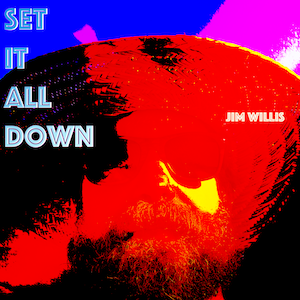early 2000s? Not sure when i read/wrote this but definitely before 2002
I could be cynical as hell and say Hey, Annie! Ain’t this book already been written once by Hank Thoreau? But there’s little point in cynicism since it’s only really appropriate when the speaker has absolutely no idea what he’s talking about but is just dying to appear as an expert. But anyway.
Pilgrim at Tinker Creek is not fiction. It’s a sort of journal. A really, really good journal kept by someone who can write like a banshee. Dillard lives in the woods for a few seasons and documents the changes and minutia of a creek that passes through her woods. She is there to be astounded and shares her various astonishments in this sorta-journal.
So right now, you’re probably thinking, So what the hell would I want to read some granola freak’s journal fer anyway?
Well, for one thing, she’s got some very cool things to say, I quote:I am a frayed and nibbled survivor in a fallen world, and I am getting along. I am aging and eaten and have done my share of eating too. I am not washed and beautiful, in control of a shining world in which everything fits, but instead am wandering awed about on a splintered wreck I’ve come to care for, whose gnawed trees breathe a delicate air, whose bloodied and scarred creatures are my dearest companions, and whose beauty beats and shines not in its imperfections but overwhelmingly in spite of them, under the wind-rent clouds, upstream and down.
AndNo, I’ve gone through this a million times, beauty is not a hoax—how many days have I leaned not to stare at the back of my hand when I could look out at the creek? Come on, I say to the creek, surprise me; and it does, with each new drop. Beauty is real. I would never deny it; the appalling thing is that I forget it.
In about a zillion different ways and using a zillion different scenarios Dillard tells the reader: pay attention! I’d tend to agree with her but the problem for me is in deciding what to pay attention to. Dillard (I think) addresses this issue with a quote from Thomas Merton: There is always a temptation to diddle around in the contemplative life, making itsy-bitsy statues. She describes how easy it is to “diddle around in life making itsy-bitsy friends and meals and journeys for itsy-bitsy years on end.” I think the trap she warns against is not so much paying attention to the wrong things, but rather paying attention in the wrong way. I think there are perhaps two ways of paying attention: In one way you watch each moment unfold, commenting, critiquing and cataloging so that you can later remember it. In the other mode of attention, you simply watch the moment unfold—no narration. The first method leads to itsy-bitsy statues; the later to a life that is bright and extravagant and dangerous.
Dillard says:The universe was not made in jest but in solemn incomprehensible earnest. By a power that is unfathomably secret, and holy, and fleet. There is nothing to be done about it, but ignore it, or see. And then you walk fearlessly, eating what you must, growing wherever you can, like the monk on the road who knows precisely how vulnerable he is, who takes no comfort among death-forgetting men, and who carries his vision of vastness and might around in his tunic like a live coal which neither burns nor warms him, but with which he will not part.
And that’s the rub, isn’t it? The world is real and beautiful. We see this all the time when we pay attention. The problem is that we forget more often than not to pay attention.

